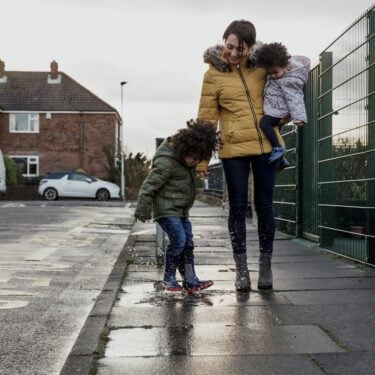-
Professor Rick HoodKingston University
-
Dr Chao WangKingston University
-
Deven GhelaniPolicy in Practice
-
Dr Liam BerrimanUniversity of Sussex
-
Dr Keith ClementsNational Children's Bureau
-
Dustin HutchinsonNational Children's Bureau
Project overview
This project will investigate the connection between child welfare provision and changes to household income and financial precarity.
Why this research is important
The sharp rise in the cost of living has put pressure on the finances of millions of families. This could impact the health and wellbeing of children and adults, particularly those living in deprived areas and from minoritised groups.
Recent government reports and an independent review of children’s social care have accepted the importance of socio-economic factors as a driver of child safeguarding interventions. However, policies that address risks to children by improving material and socio-economic circumstances are rare, and their impact is not often evaluated.
How the research will be carried out
The research team will use linked operational data, informed by stakeholder voices, to analyse the extent to which, and under what conditions, financial precarity is associated with a higher likelihood of referral to child social care services and subsequent interventions.
This research will be completed in three stages:
- Examining the dynamic effects of changes in household income and the cost-of-living on financial precarity and child welfare provision.
- Analysing the impact of the 2020-21 Universal Credit uplift on financial precarity, referrals to children’s social care, and subsequent interventions.
- Investigating stakeholders’ experiences of the relationship between financial precarity and child welfare, and their views about the ethical use of data to improve policy and service response.
The research will be carried out in collaboration with six English local authorities.
How this research will make a difference
The findings will inform the development of joined-up social policies that improve families’ financial circumstances and child welfare.
Outputs from the project will be directed at:
- local authority social workers and managers in children’s social care
- relevant networks and associations
- policy makers in government departments, charities and third sector organisations
- and organisations representing potential and actual services users.





































